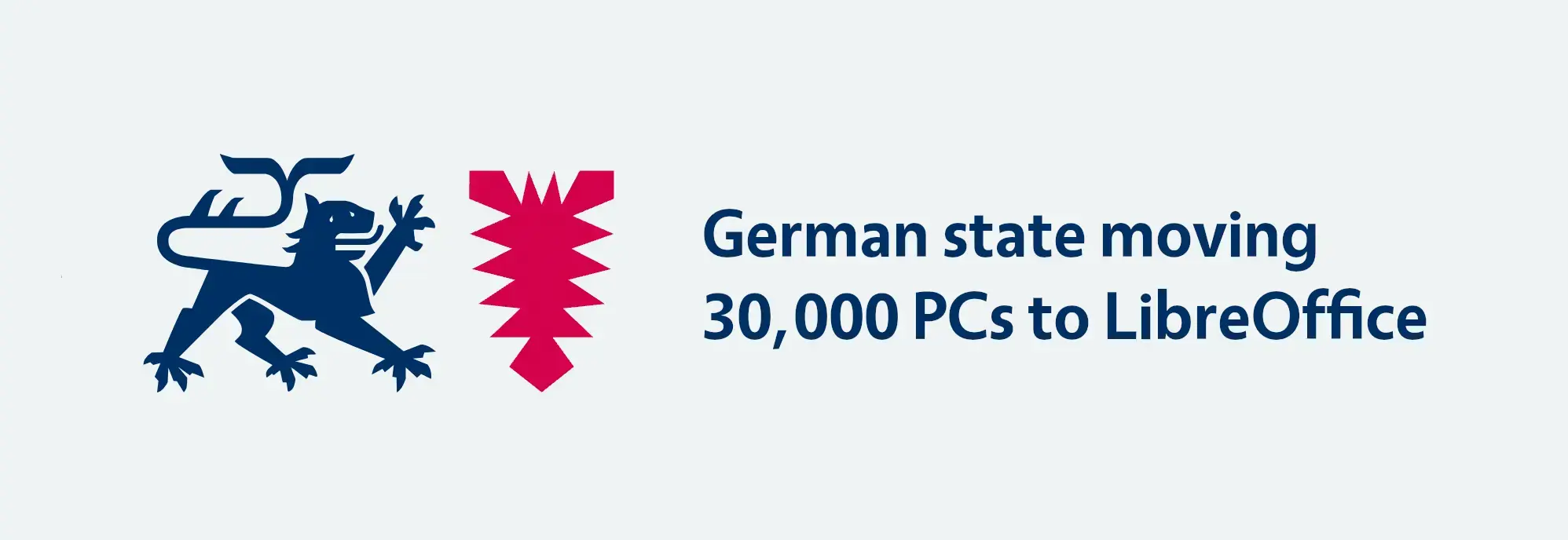Schleswig-Holstein, the northern German federal state, will be a digital pioneer region and the first German state to introduce a digitally sovereign IT workplace in its state administration. With a cabinet decision to introduce the open-source software LibreOffice as the standard office solution across the board, the government has given the go-ahead for the first step towards complete digital sovereignty in the state, with further steps to follow.
The some 30,000 public employees will replace Microsoft Office with LibreOffice, Windows with a yet-to-be-determined Linux desktop distro, and use Nextcloud, Open Xchange/Thunderbird, and the Univention Active Directory (AD) connector to replace Sharepoint and Exchange/Outlook. The state also intends to replace Telekom-Flexport by an Open Source solution.
“The use of open source software also benefits from improved IT security, cost-effectiveness, data protection, and seamless collaboration between different systems,” says Dirk Schrödter, digitalization minister for the German state of Schleswig-Holstein.
“We have no influence on the operating processes of [proprietary] solutions and the handling of data, including a possible outflow of data to third countries,” he adds.
“We have a great responsibility towards our citizens and companies to ensure that their data is kept safe with us, and we must ensure that we are always in control of the IT solutions we use and that we can act independently as a state.”
As The Document Foundation, the organization backing LibreOffice, put it, “The term digital sovereignty is very important here. If a public administration uses proprietary, closed software that can’t be studied or modified, it is very difficult to know what happens to users’ data.”



If talking about a closed source app, their whole goal is to move off of hosting closed source systems.
Article says the decision follows a successful pilot project, so they’re willing to absorb the short term costs. Optimistically in the long run, the symbiotic benefits of having a government entity using and supporting a full FOSS system will be huge.